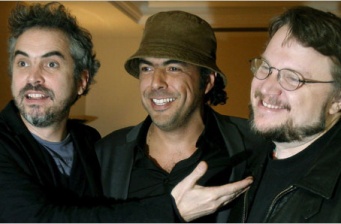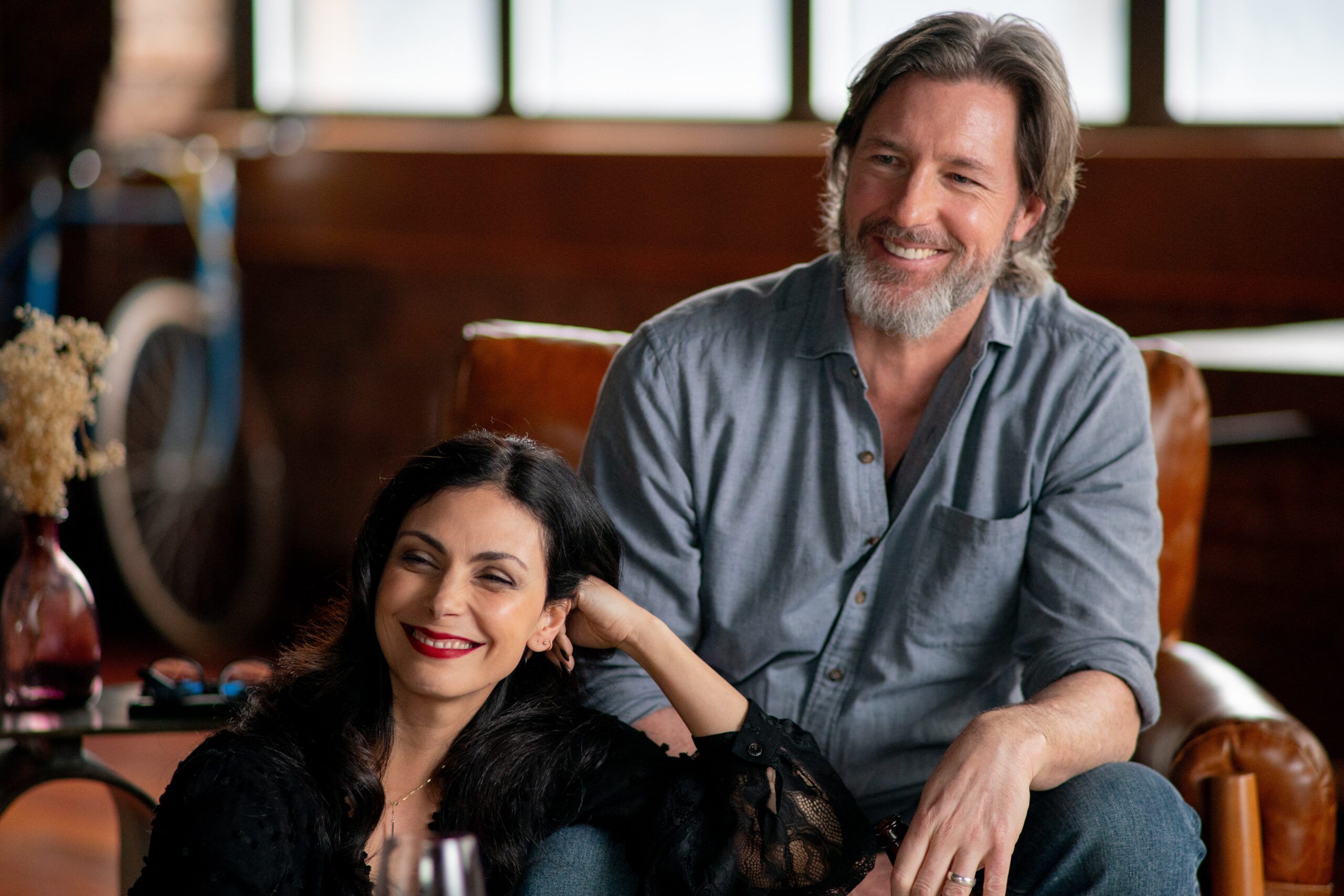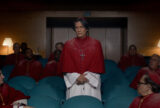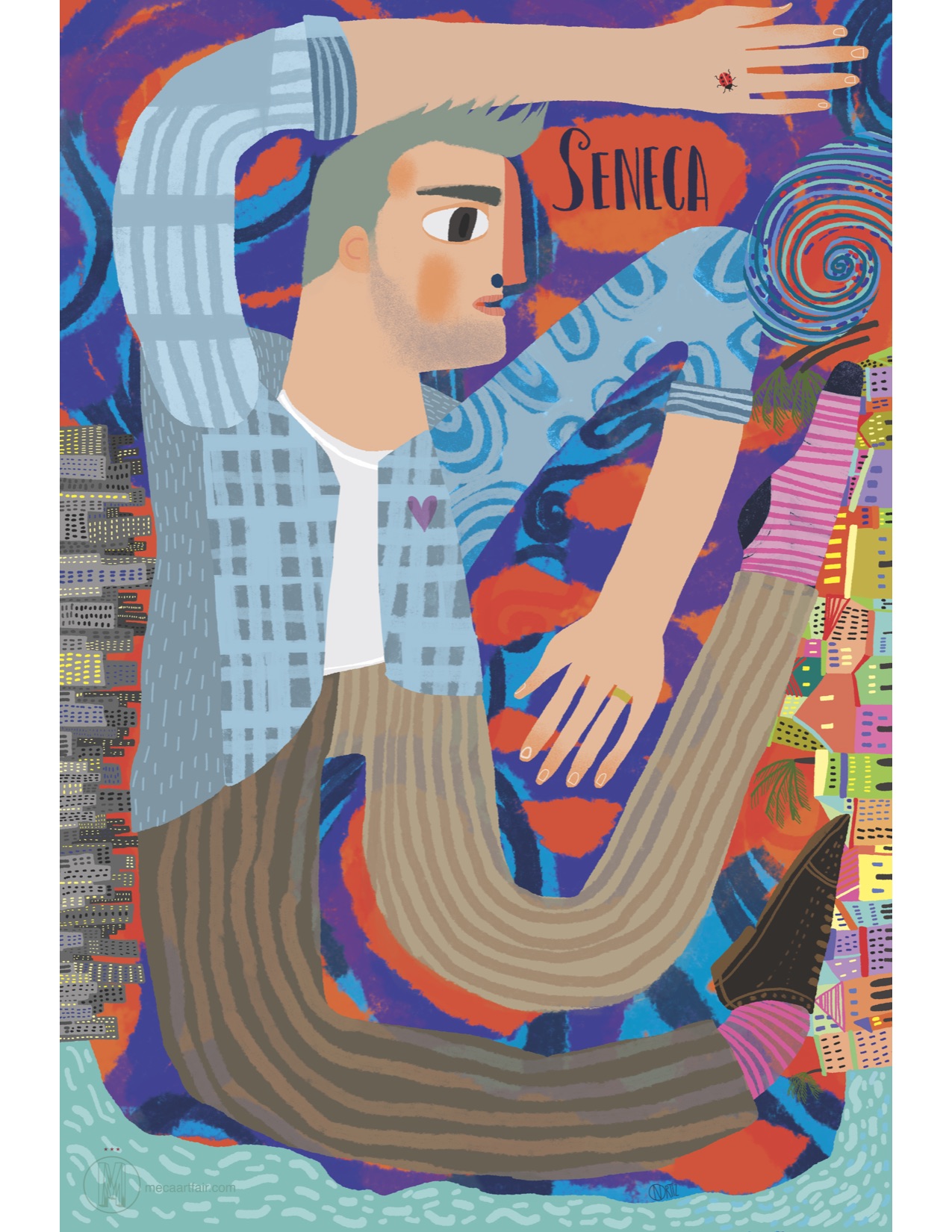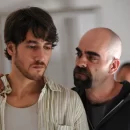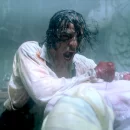04.27.2009 | By Mack Chico |

CHA CHA CHA FILMS is the name of the new production company started by Mexico’s three most successful and acclaimed directors: Alfonso Cuarón, Alejandro González Iñárritu and Guillermo del Toro. But don’t go looking for an office or a telephone number here, or anywhere else for that matter, because you won’t find one.
That’s not just because of a dislike for bureaucracy and unnecessary overhead. After scoring a series of box office hits and Oscar nominations and awards in recent years with movies like “Harry Potter and the Prisoner of Azkaban” (Mr. Cuarón), “Babel” (Mr. González Iñárritu) and “Pan’s Labyrinth” (Mr. del Toro) the three directors now have their pick of big-budget, studio-supported projects to take them all over the world.
But that means the Three Amigos, as Hollywood has taken to calling them, don’t spend as much time with one another as they would like. So an official business relationship, with lots of phone calls and e-mail messages flying back and forth across the planet, seemed the best way to continue the conversation about cinema they have been having since they were starting out and first met here two decades ago.
“We don’t have a mission statement,” said Mr. del Toro, 44, who also has directed “Hellboy” and “The Devil’s Backbone” and is now at work on “The Hobbit” in New Zealand. “Right now we can do anything, make a movie in French or in Spanish, together or apart, producing or not producing, helping with the writing and ping-ponging ideas. It’s more like a virtual company than a big development company.”
The first film being released under the Cha Cha Cha banner is “Rudo y Cursi,” or “Tough and Corny,” which the three partners produced but did not direct. Set to open in the United States on May 8, it is a bittersweet comedy about two brothers of humble origin who become big league Mexican soccer stars almost overnight. Spoiled by their success, they see their careers collapse just as rapidly.
The brothers Tato and Beto Verdusco are played by Gael García Bernal and Diego Luna, probably best known to American audiences for their breakout roles in “Y Tu Mamá También.” That film, nominated for an Academy Award in 2002 for best original screenplay, was directed by Mr. Cuarón, 47, who wrote it with his brother Carlos, 42. Carlos Cuarón makes his feature-length debut as a director in “Rudo y Cursi” in what can only be called a family setting.
“Rudo y Cursi” is set in the world of sports and examines issues like corruption and celebrity, but “this is really a film about brotherhood,” Carlos Cuarón said in an interview here. That seems an appropriate assessment not just because of the plot and Alfonso Cuarón’s involvement as a co-producer, but also because Mr. del Toro and Mr. González Iñárritu, 45, are “like a pair of older brothers to me,” Carlos said.
That means they are willing to offer tough love to help their younger sibling get his directing career off on the right foot. “I don’t think you can find producers who are more demanding than these three, and in a very positive way,” Mr. Luna said. “They gave Carlos a structure and a mechanism that allowed his talent to flourish, but they questioned him a lot too. What do you want to say? Are you sure you want to say this? Is this the best way to say this?”
As Carlos Cuarón recalls it, Mr. del Toro was the one who originally encouraged him to become a director. One night more than a decade ago, when the two men were having dinner together here, Mr. del Toro noticed that Mr. Cuarón was feeling “sad and depressed,” and asked why.
“I told him, that I was writing all these screenplays that weren’t getting produced, and that it was like giving birth to dead babies,” Mr. Cuarón explained. “Being the wise man he is, he answered ‘Don’t be stupid, direct them yourself, damn it,’ and that’s how all this began.”
The presence of Mr. García Bernal and Mr. Luna also adds to the familial vibe. Though they are close friends, this is the first time they have acted together in a film since “Y Tu Mamá También.” In “Rudo y Cursi” they are cast against type, with Mr. García Bernal as the sentimental brother and Mr. Luna as the loutish one, because, as Carlos Cuarón put it, “I didn’t want to make ‘Y Tu Mamá También II.’ ”
For all the talk about the Three Amigos, their personalities, backgrounds and tastes are quite different. Mr. del Toro, for example, is a self-described nerd, renowned for his warmth and good humor, reflected in the cuddly nickname el Osito, or the Little Bear, who had to work his way up to director, starting as a makeup and special effects artist.
Mr. González Iñárritu, on the other hand, has always been regarded here as something of a golden boy. Nicknamed el Negro, he has matinee idol good looks and was a successful director, of commercials and of television programs at Mexico’s leading network, before Mr. del Toro and the Cuaróns, whose careers he helped at crucial moments.
Their work styles and the types of films they have tended to make are different too. “With Guillermo the shots are almost mathematical — everything is planned,” Alfonso Cuarón said in an interview at the Sundance Film Festival in January. “But Alejandro never knows what he is going to shoot until he is there in the place. He is like a field reporter. He has to see to know what he wants to do.”
Mr. García Bernal has a distinctive vantage point, having worked with both of the Cuarón brothers and Mr. González Iñárritu. He described Alfonso Cuarón’s style as “more intimate” and character driven, endorsed the prevailing notion of Mr. González Iñárritu as an auteur fond of complicated, interlocking stories and said Mr. del Toro’s strongest suit was genre films, especially fantasy.
What unites the three, Mr. García Bernal continued, is their hunger to work and their encyclopedic knowledge of film and other forms of pop culture. “They speak a common language, with a lot of shared references that come from the fact that they grew up here in Mexico at the same time,” he said. “Cha Cha Cha is really the formalization of their friendship, but in a work setting.”
As a business venture Cha Cha Cha was clearly conceived as a way for the three to combine and multiply their clout and bargaining power. The company’s deal calls for its coming films to be distributed through Universal Pictures, which released Alfonso Cuarón’s “Children of Men” and, through its boutique division Focus Features, Mr. González Iñárritu’s “21 Grams.” The studio is to handle distribution and marketing, and in return for shouldering the bulk of the financial risk themselves the Three Amigos get what they prize most: creative independence.
“We all had movies out at the same time in 2006,” Mr. Cuarón said. “Alejandro had ‘Babel,’ Guillermo had ‘Pan’s Labyrinth’ and I had ‘Children of Men.’ There was a synchronicity to that, a lot of layers, and I think it deepened our interest in working together.” Combined these films received 16 Academy Award nominations and won 4 Oscars.
For Latin America cinema the Cha Cha Cha experiment also represents a new way of engaging and relating to Hollywood. Directors of earlier generations, like Glauber Rocha and Ruy Guerra, to cite two examples from Brazil, often defined their identities quite vocally in opposition to Hollywood and took pride in operating outside a studio system that might not have been all that interested in them either.
But the Cha Cha Cha directors and their contemporaries, who include Brazilians like Walter Salles and Fernando Meirelles, move easily in and out of Hollywood, using the studio system when it seems to suit a particular project but going elsewhere for financing and marketing when it does not.
“These guys are Mexican through and through and embrace their heritage and everything that comes with that,” David Linde, a chairman of Universal Pictures, said of the Three Amigos. “But they have a global perspective, much as I hate that phrase. It fascinates them to tell stories in Mexico, Spain, the U.K. and the United States because what drives them, quite simply, is an interest in what it means to be human.”
That flexibility doesn’t always sit well with Latin American critics, intellectuals and even some filmmakers working in the local system, which often relies on government rather than private funds. Here, for example, Cha Cha Cha’s founders, while often praised as examples of how Mexicans can succeed on the world stage, have also found themselves accused of selling out to Hollywood and Europe and toning down or even sacrificing what is specifically and distinctly Mexican in their work.
“That’s an infantile argument, a really simplistic concept that is often used to defend limits and mediocrity,” Mr. González Iñárritu said. “Yes, I am a Mexican, and I have a past and a culture. But what matters is the film itself, not where it was financed or cast. Cinema is universal, beyond flags and borders and passports.”
Cha Cha Cha’s second production will be Mr. González Iñárritu’s “Biutiful,” a drama starring Javier Bardem that Mr. González Iñárritu is now editing in Spain but did not want to discuss. After that three more films are due Universal, and then the Three Amigos will pause to assess whether they wish to continue as a team.
“This is a friendship, not a marriage, and when there is the first symptom that business is going to make it a problem, we will walk away,” Mr. del Toro said. “There is nothing, no big company that ties us together, other than our friendship.”

